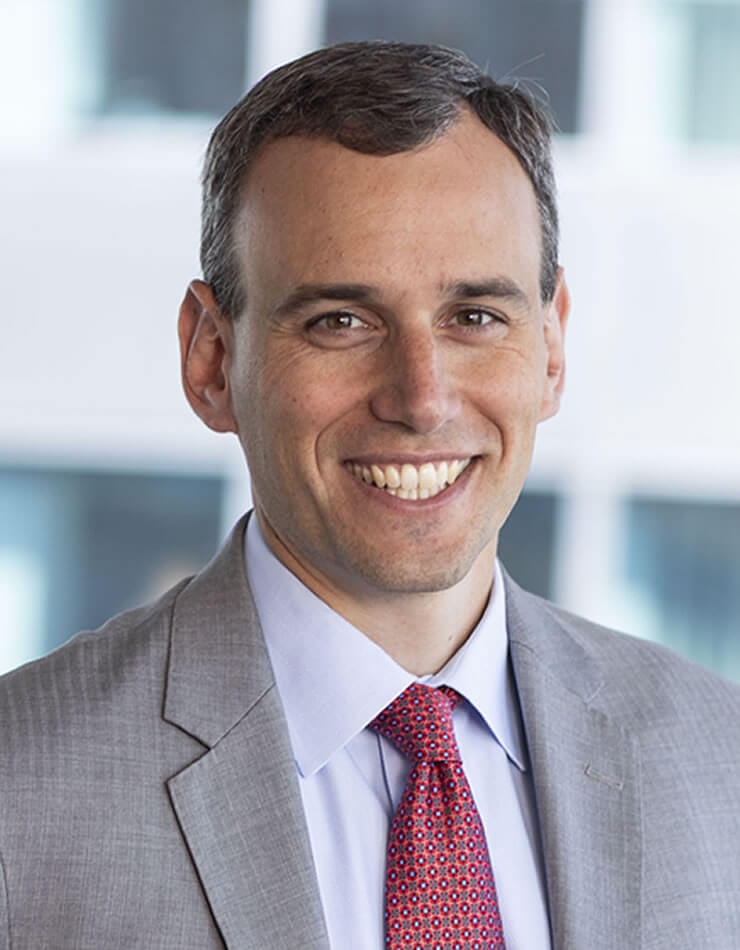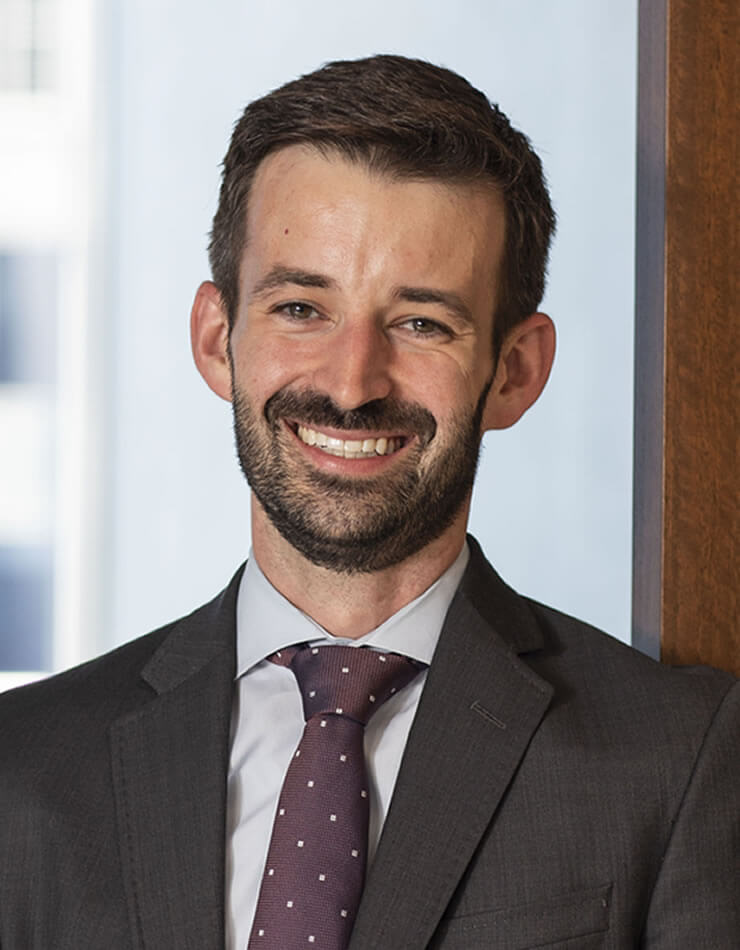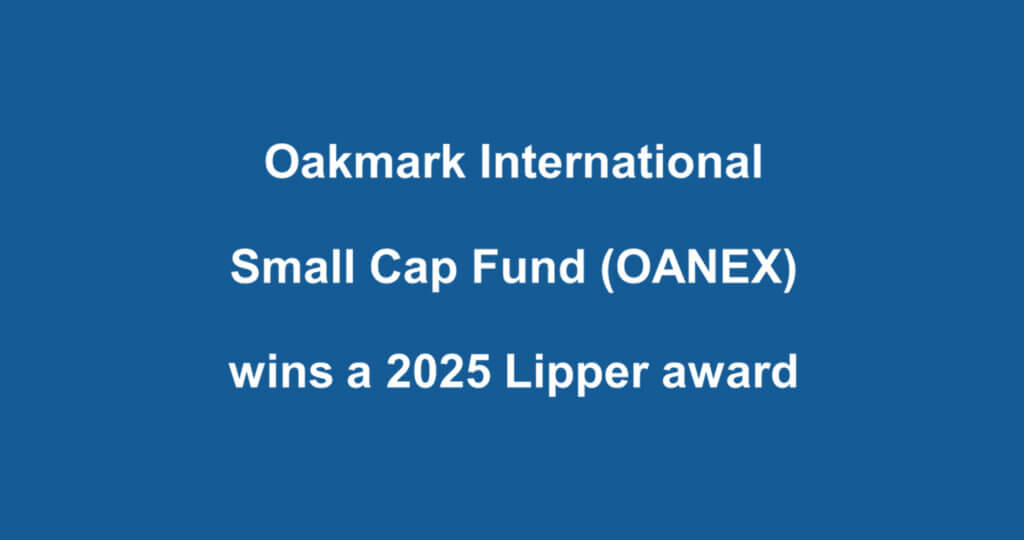Oakmark International Small Cap Fund – Investor Class
Average Annual Total Returns 06/30/23
Since Inception 11/01/95 8.54%
10-year 5.86%
5-year 4.40%
1-year 25.61%
3-month 3.84%
Expense Ratio: 1.34%
Expense ratios are from the Fund’s most recent prospectus dated January 28, 2023; actual expenses may vary.
Past performance is no guarantee of future results. The performance data quoted represents past performance. Current performance may be lower or higher than the performance data quoted. The investment return and principal value vary so that an investor’s shares when redeemed may be worth more or less than the original cost. To obtain the most recent month-end performance data, view it here.
The Oakmark International Small Cap Fund (“the Fund”) returned 3.8% for the quarter ending June 30, outperforming the MSCI World ex U.S. Small Cap Index, which returned 0.5% for the same period. Since its November 1995 inception, the Fund has earned an annualized return of 8.5% per year.
It was an active quarter for bid activity within the portfolio. The Fund’s three largest contributors— Software Ag, Applus and SoftwareOne—all received bid interest from private equity. While we are encouraged when private buyers recognize value in our portfolio companies, the companies’ boards had mixed responses to the offers.
Software AG (Germany), a software and services technology company, was the top contributor to the Fund’s performance. On April 21, Silver Lake announced a deal to acquire a 25% shareholding in Software AG from the Software AG foundation for EUR 30 per share and announced a tender offer at the same price for all remaining shares. This was accepted by the board and eventually increased to EUR 32 per share. Silver Lake now owns more than 60% of the company’s voting shares. While the EUR 32 per share price represented an over 60% premium relative to the share price before the announcement and a significant return for investors, the price is well below our estimate of intrinsic value and was consequently a disappointment to us. Unfortunately, the supervisory and management boards of Software AG declined to allow a competitive bid process that might have benefitted shareholders more and allowed Silver Lake to succeed with an opportunistic offer. At Applus, a Spanish testing and inspection company, three private equity firms expressed interest during the quarter, and all were granted diligence rights. Ultimately, Apollo offered EUR 9.50 per share, which we believe undervalues Applus. Currently, Applus shares are trading above Apollo’s offer price because one of the other interested firms engaged in diligence could respond with a higher offer. We appreciate the Applus board’s willingness to allow a competitive bid process to develop. SoftwareOne, a Swiss value added reseller (VAR), received an unsolicited offer of CHF 18.50 per share from Bain, which the board rejected. We believe Bain’s offer materially undervalued SoftwareOne, so we supported the board’s rejection of it. We were impressed by the independence displayed by SoftwareOne’s board as Bain’s offer had support of SoftwareOne’s founders (who control just under 30% of the outstanding equity). It’s worth noting the founders that supported the offer would have been able to rollover their investment in SoftwareOne—an opportunity not available to other shareholders.
Viaplay (Sweden), a media and entertainment company, was the top detractor to the Fund’s performance for the quarter. The company issued a profit warning in June and replaced its CEO with immediate effect. We believe Viaplay’s difficulties are due to a convergence of a tough macro environment and a growth-minded former CEO who was slow to adapt, which prompted its board to opt for a course correction. We still believe that Viaplay is a good business and that quick and commercial action should be able to strengthen the company. Despite the disappointing guidance revisions, we still appreciate its Nordic business which has a 30-year track record of profitability, strong engagement metrics, and position as a leader in local and sports content. We look forward to the new plan and financial targets from CEO Jorgen Lindemann, the former CEO of MTG, which previously housed Viaplay.
We initiated new positions in the following during the quarter:
- Adecco (Switzerland) is the second-largest generalist staffer globally, supplying temporary help and permanent placement services for a range of occupations. Adecco’s performance in recent years has trailed its publicly traded peers Randstad and Manpower by a wide margin. We believe the company’s new management, led by CEO Denis Machuel, has a credible strategy to correct many of the self-inflicted wounds that troubled the company in the past. Despite its cyclicality, a staffing business can provide strong returns on capital, cash conversion and growth over time. As its past under-performance is corrected, we believe Adecco has a credible path to high-single-digit earnings growth, which, combined with an undemanding valuation, creates attractive upside potential.
- Euronext (France) is a pan-European stock exchange and market infrastructure provider. Across geographies and markets, exchanges can be good defensive businesses that provide reasonable growth, high incremental margins and strong free cash flow conversion. They also have strong track records of value creation through M&A. Over the past decade, Euronext’s strong management team has created significant value by continually improving business quality and diversifying geographic mix through M&A. These efforts culminated in the company’s transformative EUR 4.3B acquisition of Borsa Italiana in 2021, which, among its many benefits, completed the company’s decade-long journey to becoming a fully vertically integrated market infrastructure company. With the build-out of the company’s footprint and operational capabilities now largely complete, we expect the focus to turn to accelerating organic growth and driving margin improvement over the next few years. Trading near record low multiples, Euronext’s share price does not reflect our estimate of the company’s strength, improvements in asset quality or its future prospects.
- Sapiens International (Israel) is a global leader in core software solutions in the insurance industry. Because insurance core software is the most mission-critical function in an insurance company and replacing a system is both expensive and disruptive, Sapiens’s customer base is extremely sticky. Given that half of all insurers still use mainframes and will need to modernize to stay competitive, we believe that Sapiens also has significant growth potential. Even after a company selects Sapiens, there are further long-tailed opportunities for growth. Finally, the company has multiple opportunities for margin expansion, including offshoring service talent, re-leveraging its North America business investments and transitioning to the cloud.
During the quarter, we sold abrdn (U.K.) and Element Fleet Management (Canada) to fund other positions we believe offer more attractive opportunities on a risk-to-reward basis.
Geographically, we ended the quarter with approximately 79.6% of our holdings in Europe and the U.K., 10.5% in Asia, and 3.1% in Australasia. The remaining positions are in the Americas with 2.8% in Latin America (Mexico) and 2.9% in North America (Canada) and 1.1% in Africa/Middle East (Israel).
Thank you for your continued confidence and support.
The securities mentioned above comprise the following preliminary percentages of the Oakmark International Small Cap Fund’s total net assets as of 06/30/2023: abrdn 0%, Adecco 0.5%, Apollo 0%, Applus Services 2.5%, Bain 0%, Element Fleet Management 0%, Euronext 0.8%, Manpower 0%, Randstad 0.5%, Sapiens International (US Shs) 0.4%, Software AG 2.7%, SoftwareONE Holding 2.2% and Viaplay Cl B 0.4%. Portfolio holdings are subject to change without notice and are not intended as recommendations of individual stocks.
The MSCI World ex US Small Cap Index (Net) is designed to measure performance of small-cap stocks across 22 of 23 Developed Markets (excluding the United States). The index covers approximately 14% of the free float-adjusted market capitalization in each country. This benchmark calculates reinvested dividends net of withholding taxes. This index is unmanaged and investors cannot invest directly in this index.
On occasion, Harris may determine, based on its analysis of a particular multi-national issuer, that a country classification different from MSCI best reflects the issuer’s country of investment risk. In these instances, reports with country weights and performance attribution will differ from reports using MSCI classifications. Harris uses its own country classifications in its reporting processes, and these classifications are reflected in the included materials.
The Fund’s portfolio tends to be invested in a relatively small number of stocks. As a result, the appreciation or depreciation of any one security held by the Fund will have a greater impact on the Fund’s net asset value than it would if the Fund invested in a larger number of securities. Although that strategy has the potential to generate attractive returns over time, it also increases the Fund’s volatility.
The stocks of smaller companies often involve more risk than the stocks of larger companies. Stocks of small companies tend to be more volatile and have a smaller public market than stocks of larger companies. Small companies may have a shorter history of operations than larger companies, may not have as great an ability to raise additional capital and may have a less diversified product line, making them more susceptible to market pressure.
Investing in foreign securities presents risks that in some ways may be greater than U.S. investments. Those risks include: currency fluctuation; different regulation, accounting standards, trading practices and levels of available information; generally higher transaction costs; and political risks.
The information, data, analyses, and opinions presented herein (including current investment themes, the portfolio managers’ research and investment process, and portfolio characteristics) are for informational purposes only and represent the investments and views of the portfolio managers and Harris Associates L.P. as of the date written and are subject to change and may change based on market and other conditions and without notice. This content is not a recommendation of or an offer to buy or sell a security and is not warranted to be correct, complete or accurate.
Certain comments herein are based on current expectations and are considered “forward-looking statements”. These forward looking statements reflect assumptions and analyses made by the portfolio managers and Harris Associates L.P. based on their experience and perception of historical trends, current conditions, expected future developments, and other factors they believe are relevant. Actual future results are subject to a number of investment and other risks and may prove to be different from expectations. Readers are cautioned not to place undue reliance on the forward-looking statements.
All information provided is as of 06/30/2023 unless otherwise specified.










